 полная версия
полная версияThe American Revolution
It was now ten o’clock. All this time the Alliance had kept out of the fight, but the Pallas had attacked the Countess of Scarborough, and after a brisk cannonade compelled her to surrender. The Alliance now came down, and stupidly poured a raking volley along the decks of the two chief combatants, doing impartial damage to friend and foe. Warning shouts went up from the Bon Homme Richard, and her commander called out to Captain Landais to fall upon the farther side of the Serapis and board her. The Frenchman replied that he would do so, but instead he ran his ship off a couple of miles to leeward, and comfortably awaited the end of the battle. By this time the Serapis was on fire in several places, so that part of her crew had to leave their guns, and bend all their energies to extinguishing the flames. The American ship was in still worse plight; she had not only been burning for half an hour, but so many holes had been shot in her hull that she began to sink. She had more than a hundred British prisoners below decks, and these men were now set free and marshalled at the pumps. Few guns were worked on either ship, and the rest of the fight between the two exhausted combatants was a mere question of dogged tenacity. At last Captain Jones, with his own hands, directed a couple of guns against the enemy’s mainmast, and just as it was threatening to fall she surrendered. The gallant British commander stood almost alone on the main deck of his ship, in the midst of an awful scene of death; while of his few men who remained unhurt, most had sunk down, panting and overcome with fatigue. No sooner were the ships cut asunder than the tottering mainmast of the Serapis went overboard, carrying with it the mizzen topmast and all the mizzen rigging.[30] The Bon Homme Richard was with difficulty kept afloat till morning, and all night long fresh men from her consorts were hard at work fighting the flames, while the wounded were being carried off. At ten o’clock next morning she sank.
Effect of Jones’s victoryThus ended one of the most obstinate and murderous struggles recorded in naval history. Of the men engaged, more than half were killed or badly wounded, and few got off without some scar or bruise to carry as a memento of that dreadful night. From a merely military point of view, this first considerable fight between British and American frigates had perhaps no great significance. But the moral effect, in Europe, of such a victory within sight of the British coast was prodigious. The King #Page_vi_2 France made Paul Jones a knight of the order of merit, and from the Empress of Russia he received the ribbon of St. Anne. The King of Denmark settled a pension on him, while throughout Europe his exploit was told and told again in the gazettes, and at the drinking-tables on street corners. On his arrival in Holland, whither he went with his prizes a fortnight after the battle, the British government peremptorily demanded that he should be given up, to be hanged as a pirate. The sympathies of the Dutch were decidedly with the Americans; but as they were not quite ready to go to war with England, a tardy notice was given to Jones, after ten weeks, that he had better quit the country. Though chased by a British fleet, he got safely to France in December, and after various adventures, lasting through the ensuing year, he reached Philadelphia early in 1781. On inquiry into the extraordinary behaviour of Captain Landais some doubt as to his sanity arose, so that he was not shot for disobedience of orders, but simply discharged from the navy. Paul Jones was put in command of the America 74, but the war was so nearly ended that he did not get to sea again, and Congress presented his ship to the King of France. In 1788, he passed into the Russian service with the rank of rear-admiral. He died in Paris, in 1792, in the forty-fifth year of his age.
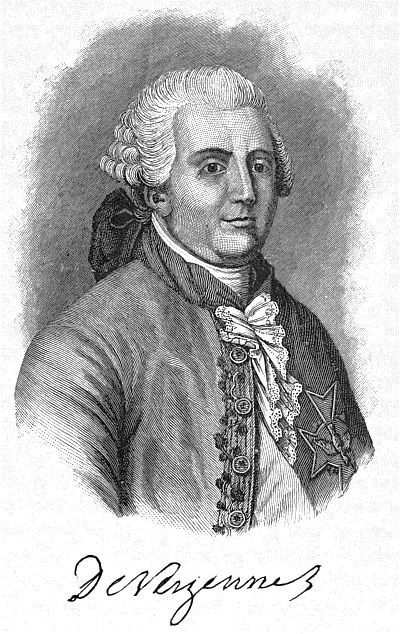
Here the question naturally arises, Why should the King of Denmark and the Empress of Russia have felt so much interest in the victory of Paul Jones as to confer distinguished honours upon him for winning it? The answer, at which we shall presently arrive, will forcibly disclose to us the extent to which, by the end of the year 1779, the whole civilized world had become involved in the quarrel between England and her revolted colonies. As at the bridge of Concord the embattled farmers of Massachusetts had once fired a shot heard round the world, so those last guns aimed by Paul Jones against the mainmast of the Serapis aroused an echo of which the reverberations were not to cease until it should be shown that henceforth nobler principles of international law must prevail upon the high seas than had ever yet been acknowledged. We have now to trace the origin and progress of the remarkable complication of affairs which at length, during the year 1780, brought all the other maritime powers of Europe into an attitude of hostility toward Great Britain. For not until we have duly comprehended this can we understand the world-wide significance of our Revolutionary War, or estimate aright the bearings of the events which led to that grand twofold consummation, – the recognition of the independence of the United States, and the overthrow of the personal government of George III. in England.
Relations of Spain to France and EnglandPaul Jones was not the only enemy who hovered about the British coast in the summer of 1779. In June of that year, Spain declared war against England, but without recognizing the independence of the United States, or entering into an alliance with us. From the beginning, Count Vergennes had sought Spanish aid in his plans for supporting the Americans, but anything like cordial coöperation between Spain and France in such an undertaking was impossible, for their interests were in many respects directly opposite. So far as mere hatred toward England was concerned, Spain doubtless went even farther than France. Spain had not forgotten that she had once been mistress of the seas, or that it was England which had ousted her from this supremacy in the days of Queen Elizabeth. Of England, as the greatest of Protestant and constitutional powers, as the chief defender of political and religious liberty, priest-ridden and king-ridden Spain was the natural enemy. She had also, like France, the recollection of injuries lately suffered in the Seven Years’ War to urge her to a policy of revenge. And to crown all, in the event of a successful war, she might hope to regain Jamaica, or the Floridas, or Minorca, or, above all, Gibraltar, that impregnable stronghold, the possession of which by England had for more than sixty years made Spaniards blush for shame. On the other hand, Spain regarded the Americans with a hatred probably not less rancorous than that which she felt toward the British. The mere existence of these English colonies in North America was a perpetual reminder of the days when the papal edict granting this continent to Spain had been set at naught by heretical cruisers and explorers. The obnoxious principles of civil and religious liberty were represented here with even greater emphasis than in England. In Mexico and South America the Spanish crown had still a vast colonial empire; and it was rightly foreseen that a successful revolt of the English colonies would furnish a dangerous precedent for the Spanish colonies to follow. Spain was, moreover, the chief upholder of the old system of commercial monopoly; and here her interests were directly opposed to those of France, which, since it had been deprived of its colonial empire, saw in the general overthrow of commercial monopoly the surest way of regaining its share in the trade of the world.
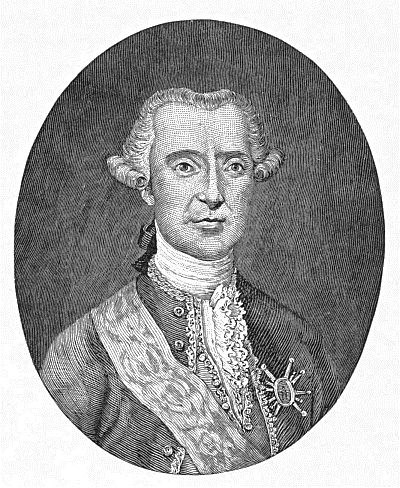
COUNT FLORIDA BLANCA
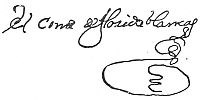
Under the influence of these conflicting motives, the conduct of Spain was marked for a time by hesitation and double-dealing. Between his various wishes and fears, the Spanish prime minister, Florida Blanca, knew not what course to pursue. When he heard of the alliance between France and the United States, which was undertaken against his advice to Vergennes, his wrath knew no bounds. It was a treaty, he said, “worthy of Don Quixote.” At first he intrigued with the British government, offering his services as mediator between England and France. Lord Weymouth, the British minister for foreign affairs, refused to enter into any negotiation so long as France should extend aid to the rebel colonies. To the covert threat of the wily Spaniard, that if the war were to continue his royal master would doubtless feel compelled to take part with one side or the other, Lord Weymouth replied that the independence of the United States would prove fatal to the continuance of Spanish control over Mexico and South America; and he suggested, accordingly, that the true interest of Spain lay in forming an alliance with Great Britain. While this secret discussion was going on, Florida Blanca also sounded Vergennes, proposing that peace should be made on such terms as to allow the British to retain possession of Rhode Island and New York. This, he thought, would prevent the formation of an American Union, and would sow the seeds of everlasting dissension between Great Britain and the American States, whereby the energies of the English race would be frittered away in internecine conflict, leaving room for Spain to expand itself. But Vergennes would not hear of this. France had recognized the independence of the thirteen States, and had explicitly and publicly agreed to carry on the war until that independence should be acknowledged by England; and from that position she could not easily retreat. At the same time Vergennes intimated that France was in no way bound to protect the American claim to the Ohio valley, and was far from desiring that the people of the United States should control the whole of North America.
Treaty between Spain and France, April, 1779Upon this suggestion the Spanish court finally acted. After six months more of diplomatic fencing, a treaty was concluded in April, 1779, between France and Spain, whereby it was agreed that these two powers should undertake a concerted invasion of England. For this undertaking, France was to furnish the land force, while both powers were to raise as great a naval armament as possible. France was to assist Spain in recovering Minorca and the Floridas, and if Newfoundland could be conquered, its fisheries were to be monopolized by the two parties to this treaty. Neither power was to make peace on any terms until England should have surrendered Gibraltar to Spain.
This convention brought Spain into the lists against England without bringing her directly into alliance with the United States. She was left free to negotiate with Congress at her own good pleasure, and might ask for the whole Mississippi valley, if she chose, in return for her assistance. Gerard, the French minister at Philadelphia, sought to persuade Congress to give up the fisheries and relinquish all claim to the territory west of the Alleghanies. There were hot debates on this subject in 1779, and indeed the situation of affairs was sufficiently complicated to call for the exercise of skilful diplomacy. As the treaty between France and Spain became known in America, it was felt to be in some respects inconsistent with the prior convention between France and the United States. In that convention it had been stipulated that neither party should make peace with Great Britain without the consent of the other. In the convention between France and Spain it was agreed that neither party should make peace until Great Britain should surrender Gibraltar. But the Americans rightly felt that, should Great Britain be found willing to concede their independence, they were in no wise bound to keep up the war for the sole purpose of helping France to conquer Gibraltar for a power which had never owed them any good will, and was at this very moment hoping to cut down their territory. The proposal to exclude America as well as Great Britain from the fisheries excited loud indignation in New England.
French and Spanish fleets attempt an invasion of England, Aug., 1779Meanwhile, the new allies had gone energetically to work. Early in 1779, a French fleet had captured the British settlements in Senegambia, and made a vigorous though unsuccessful assault upon the island of Jersey. In June, war was declared by Spain so suddenly that England was quite taken by surprise. Florida Blanca had lied with so grave a face that Lord North had not been looking out for such a step. In August, the allied French and Spanish fleets, numbering more than sixty ships-of-the-line, with a full complement of frigates, entered the English Channel, with intent to repeat the experiment of the Invincible Armada; while a French army lay at Havre, ready to cross at the first opportunity. To oppose this formidable force, Admiral Hardy was able to get together only thirty-eight ships-of-the-line, with the ordinary proportion of frigates. There was a panic in England, and the militia were called out. But owing to dissensions between the French and Spanish admirals and serious illness in the crews, nothing whatever was accomplished, and the great fleet retired crestfallen from the channel. Everybody blamed everybody else, while an immense sum of money had been spent upon a wretched fiasco. In America, however, the allies were more successful. Galvez, the Spanish governor of Louisiana, captured Baton Rouge and Mobile, with their British garrisons, and preparations were made for the siege of Pensacola, to complete the conquest of West Florida. In the West Indies, the islands of Grenada and St. Vincent were captured by Estaing. The moment that war was declared by Spain, there was begun that siege of Gibraltar which, for the heroic defence, as well as for its long duration of nearly four years, has had no parallel in the annals of modern warfare.

It was only through maritime expeditions that the two new allies could directly assail England with any hope of success; but here on the sea her natural superiority was not long in asserting itself. Great efforts were made to increase the strength of the navy, and in December, 1779, the command of the fleet in the West Indies was given to a man who among English sailors ranks with Blake and Hawke, on a plane inferior only to that occupied by Nelson. The brilliant career of Sir George Rodney began in the Seven Years’ War, in the course of which he bombarded Havre, thus warding off a projected invasion of England, and moreover captured several islands in the West Indies. It was Pitt who first discerned his genius, and put him into a position in which he could win victories. After the peace of 1763 he became a member of Parliament, but lost all he had in gambling, and fled to France to get rid of his creditors. When war broke out between France and England in 1778, the venerable Marshal de Biron lent him enough money to save him from the Marshalsea or the Fleet, and he returned to England to be appointed to the chief command in the West Indies. A vain and unscrupulous man, as many called him, he was none the less a most skilful and indomitable captain. He was ordered, on his way to the West Indies, to relieve Gibraltar, which was beginning to suffer the horrors of famine, and never was such a task more brilliantly performed. First, he had the good fortune to fall in with fifteen Spanish ships, loaded with provisions and under the convoy of seven war vessels, and all this fleet he captured. Then, at Cape St. Vincent, on a dark and stormy night, he gave chase to a Spanish fleet of eleven ships-of-the-line and two frigates, and in a sharp fight captured or destroyed all but four of them without losing one of his own ships. He thus reached Gibraltar, and after passing up to the fortress the welcome cargoes of the fifteen merchant prizes went on to the West Indies, where his presence turned the scale against the allies. A powerful French fleet under Count de Guichen was cruising in those waters; and it was hoped that this fleet would soon be able to come to New York and coöperate with Washington in an attempt to regain that city. But the arrival of Rodney changed all this, and the Count de Guichen, after being worsted in battle, sailed away for France, while Rodney proceeded to New York, to relieve Sir Henry Clinton and foil the projects of Washington.
Rights of neutrals upon the seaThat very supremacy upon the sea, however, which enabled England to defy the combined fleets of France and Spain served, in its immediate consequences, only to involve her in fresh difficulties. By the arrogant and indiscriminate manner in which she exercised the right of search, she soon succeeded in uniting against her all the neutral nations of Europe; and a principle of international law was laid down which in our own time has become fully established, and must in future essentially limit the areas over which wars are likely to extend. This new principle of international law related to the rights of merchant vessels belonging to neutral powers in time of war. In early times it was held that if one country went to war with another, its right to prey upon its enemy’s commerce was virtually unlimited. If it found its enemy’s goods carried in a ship belonging to some neutral power, it had a right to seize and confiscate them; and in days when hostility was the rule and peace the exception, when warfare was deemed honourable and commerce ignoble, and when the usages of war were rough and unscrupulous, the neutral ship itself, which carried the goods, was very likely to be confiscated also. As the neutral power whose ship was seized would be sure to resent such behaviour, it followed that any war between two maritime powers was likely to spread until it involved every other power which possessed any merchant shipping or did any business upon the high seas.
The Consolato del MareWith a view to confining such evils within as narrow a limit as possible, the maritime code known as the Consolato del Mare, which represented the commercial interests of the Middle Ages, and was generally accepted as of the highest authority in maritime affairs, recognized the right of confiscating an enemy’s goods found in a neutral ship, but did not recognize the right of confiscating the neutral ship. In the Middle Ages maritime warfare played a subordinate part; but after colonies had been planted in America and the East Indies by the great maritime nations of Western Europe, the demand for fixed rules, whereby the usages of such warfare should be regulated, soon came to be of transcendent importance. England and the Netherlands, as powers with whom industrial considerations were of the first consequence and military considerations only secondary, adhered firmly to the rule of the Consolato del Mare as the most liberal rule then in existence. France and Spain, as preëminently militant powers, caring more for the means of annoying an enemy than for the interests of commerce in general, asserted the principle that neutral ships detected in carrying an enemy’s goods were themselves lawful subjects for seizure. France, however, did not hold this doctrine so firmly as Spain. Here, as in so many other respects, France showed herself more advanced in civilization than Spain, while less advanced than England and the Netherlands. In 1655, by a treaty between Cromwell and Mazarin, France accepted the English rule; in 1681, under the retrograde government of Louis XIV., she went back to her ancient practice; in 1744, she again adopted the English rule, while Spain kept on with her old custom, until sharply called to account by Russia in 1780.
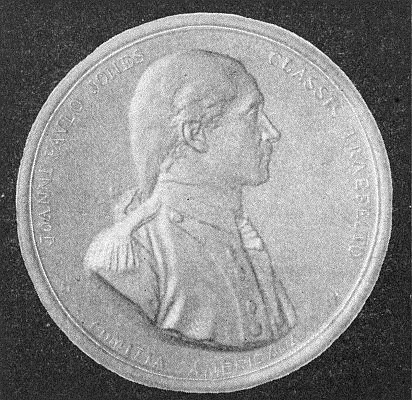
MEDAL GIVEN PAUL JONES BY CONGRESS (OBVERSE)
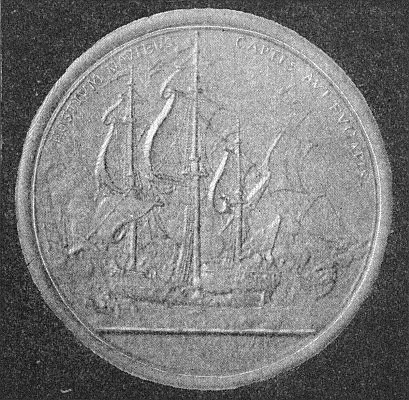
MEDAL GIVEN PAUL JONES BY CONGRESS (REVERSE)
Until the middle of the eighteenth century, the most liberal doctrines respecting maritime warfare had concerned themselves only with the protection of neutral ships. It had never occurred to anybody to maintain that the goods of an enemy should be guaranteed against scrutiny and seizure by the mere fact of their being carried on a neutral ship. That any belligerent could seize its antagonist’s property, if found on a neutral ship, was the doctrine laid down alike by Vattel and Bynkershoek, the chief French and Dutch authorities on maritime law. In acting upon this principle, therefore, at the time of our Revolutionary War, England acted strictly in accordance with the recognized maritime law of Europe. She was not, as some American writers seem to have supposed, introducing a new principle of aggression, in virtue of her position as chief among maritime powers. In stopping the defenceless merchant vessels of neutral or friendly powers, compelling them to show their bills of lading, searching their holds if need be, subjecting them to a hateful inquisition and vexatious delays, she did no more than every maritime nation had been in the habit of doing, and even less than Spain claimed the right to do. It was quite natural, too, that England should insist upon retaining this privilege, as something which no great naval power could afford to dispense with; for obviously, if in time of war your enemy can go on trading with everybody but yourself, and can even receive timber and provisions from people not concerned in the struggle, your means of crippling him are very materially diminished.
Prussian doctrine: free ships make free goodsSuch reasoning seemed conclusive everywhere in Europe until after the middle of the eighteenth century. At that time, however, the unexampled naval preponderance of England began to lead other nations to take a new view of the case. By the maintenance of the old rule, England could damage other nations much more than they could damage her. Other nations, accordingly, began to feel that it would be a good thing if the flag of a neutral ship might be held to protect any merchandise whatsoever that she might happen to have on board. This modern doctrine, that free ships make free goods, was first suggested by Prussia in 1752. Such a view naturally commended itself to a nation which had a considerable number of merchantmen afloat, without any navy fit to protect them; and it was accordingly likely to find favour in the eyes of such nations as Denmark, Sweden, Russia, and the United States. But, more than this, it was a view entirely in accordance with the philosophic tendencies of the age. The great humanitarian movement, which in our time has borne rich and ample fruit, and which has tended in every practicable way to diminish the occasions for warfare and to restrict its scope, had its first brilliant literary representatives among the clear-sighted and enthusiastic French philosophers of the eighteenth century. The liberal tendencies in politics, which hitherto England alone had represented practically, were caught up in France, as soon as the dismal and protracted tyranny of Louis XIV. had come to an end, with an eagerness that partook of fanaticism.
Influence of the French philosophersEnglish political ideas, without being thoroughly comprehended in their practical bearings, were seized and generalized by Montesquieu and Turgot, and a host of lesser writers, until they acquired a width of scope and a genial interest which exercised a prodigious influence upon the thought of Continental Europe. Never in any age, perhaps, since the days when Sokrates talked to enchanted crowds upon street corners in Athens, did men of broad philosophic ideas come so closely into contact with men absorbed in the pursuit of life’s immediate ends as at the time when all Paris rushed to kiss the hand of Voltaire, and when ladies of the court went to sleep with the last brochure of Diderot or Helvetius under their pillows. The generous “enthusiasm of humanity,” which revealed itself in every line of the writings of these great men, played an important part in the political history of the eighteenth century. It was an age of crowned philosophers and benevolent despots. Joseph of Austria, Frederick of Prussia, and Catherine of Russia, in their several ways, furnished illustrations of this tendency. Catherine, who wrote letters to Voltaire, and admired Fox above all other English statesmen, set almost as much store by free thought as by free love, and her interest in the amelioration of mankind in general was second only to her particular interest in the humiliation of the Turk. The idea of taking the lead in a general movement for the liberation of maritime commerce was sure to prove congenial to her enlightened mind, and her action would have great weight with England, which at that time, isolated from all European sympathy, was especially desirous of an alliance with Russia, and especially anxious to avoid offending her.







